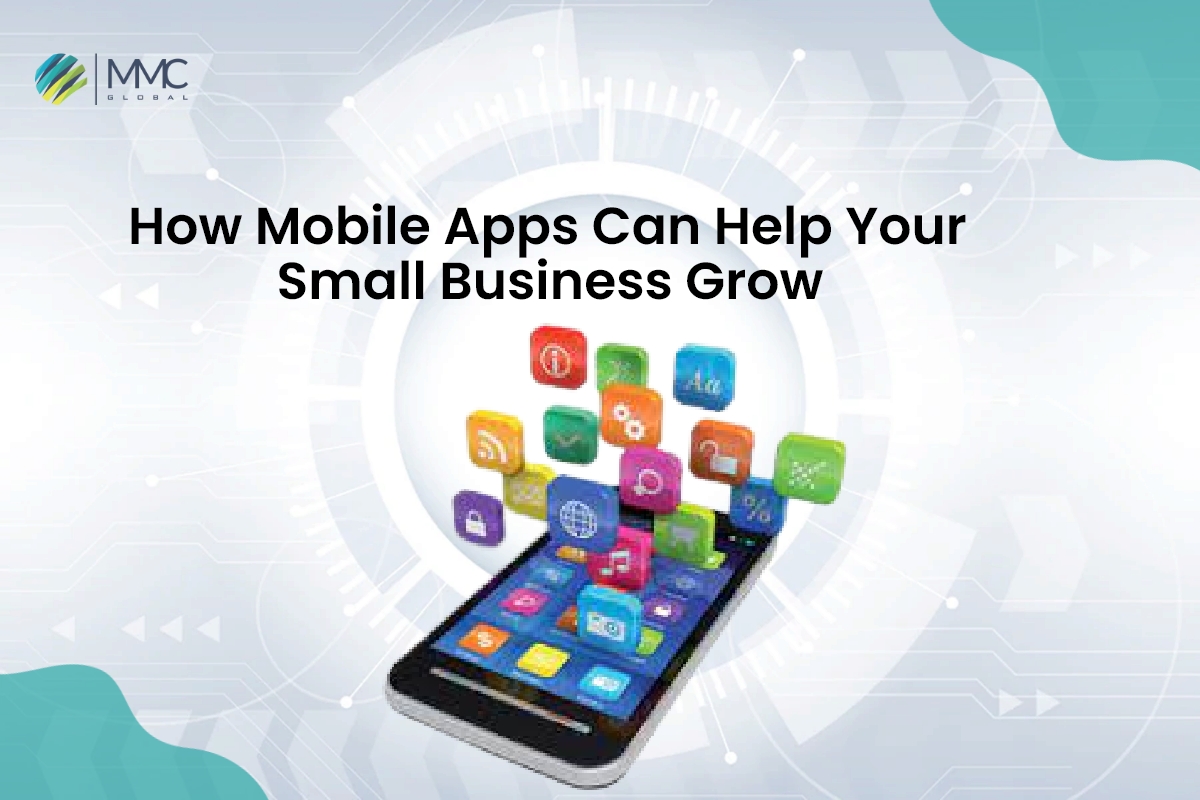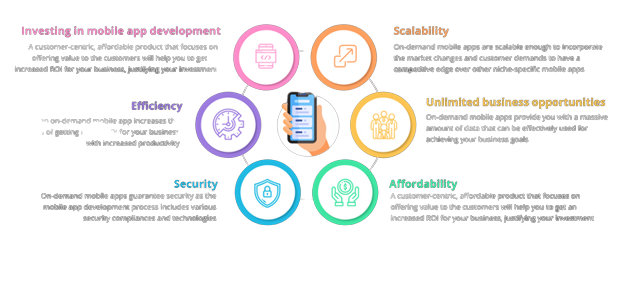How Mobile Apps Can Help Your Small Business Grow – 7 Amazing Benefits


The demand for mobile apps and mobile app development is rising as everyone knows its impact on every business growth. Open your play store or app store; you will ultimately see the multiple apps for every use.
Mobile apps are key players as it helps the organization in many ways, such as:
- To make your brand a digital identity
- Provide personalization
- Reduce the gap between customer-brand relationships
- Easy buying journey
Mobile apps are not restricted to any industry or firm. They can be healthcare apps, game apps, e-learning apps, sports apps, food and restaurant apps, fashion and beauty apps, e-commerce apps, etc.

While non-tech firms such as McDonald’s and Starbucks invest extensively in their mobile apps, we also see younger brands and small businesses establish their mobile presence. These applications with various functions and a good user experience are cool, but they are also necessary for this period, as evidenced by trends and their clear benefits.
Here we have six thriving benefits of mobile apps that can help your business grow.
Business Outlet
Mobile apps consider a business outlet or an electronic branch, particularly if you operate a small firm that does not already have a physical location. These smartphone applications teleport items into the hands of buyers wherever they are in the world for eCommerce and online shopping firms.
It is a significant advantage if you compete with larger enterprises in your product or service sector. While also saving money on operational expenditures such as shop and warehouse rent, as well as physically visible sales reps and billing staff.
Brand Recognition
You need a mobile app to advance your brand story in the market. It helps to put yourself in the same landscape as your rivals while simplifying the customer experience. If you had a website, there’s a good possibility your target visitor would search for your brand name on the Play Store or App Store.
You must have a digital presence as a business. While a well-designed website or even a web app can help you establish a digital presence, nothing surpasses a mobile app for user experience. Especially cross-platform ones, which means users can use apps for any OS.
As a smart company, you must routinely communicate with your audience through media such as webinars, blogs, discount offerings, and promotions.
Higher Revenues
Consider your mobile app to be a full-service shopping experience. It must include the essentials that can streamline the journey of buyers. It must include:
- product and service catalogs
- descriptions, sales assistants (online reps)
- price tags
- a storefront user interface
- and numerous payment choices
A mobile app serves as a direct marketing channel, with the majority of your traffic coming from potential clients who are looking to buy and have downloaded your app to look around. These are the people interested in your stuff and are ready to buy it. So you’ve won half of the lead generation and conversion fight.
You might also consider it this way:
Your mobile app may double, treble, or quadruple your leads and revenue, especially in industries with feature-rich applications. You don’t have to go out and tell everyone that your company uses apps. All you have to do is spread the word that your company offers an app with a user experience comparable to your competitors. And you’ve already gotten a portion of marketing that those other brands previously did.
As a result, the greatest advantage for small businesses that engage in mobile app development early in their journey is increased revenue and turnover. Real estate, eCommerce, and other similar businesses are excellent examples.
Loyalty Programs
Brand awareness is going to the sky by using social media. If you can encourage your users for product recommendations, that’s fantastic. Within the app interface, you can establish many sorts of loyalty programs and incentive schemes.
We all know that one of the most prevalent and commonly utilized mobile app features is social media sharing. Users may share in-app information with their family, neighbors, and professional contacts.
These loyalty programs are also great if you want to inspire your users to connect with your app on a regular basis. In addition, you can also boost brand awareness and recognition. You’ll receive another visit if they share something, and this simple contact might evolve into a transaction.
Real-Time User Data
Data gathering, storage, and analytics may greatly help increase branded mobile apps. And when people from your selected community or target group download and sign up for your app, it makes your job even simpler.
Modern organizations, large and small, rely largely on data. Data supports the majority of their effective choices. Therefore data collecting and analytics are important aspects of their strategic business operations.
You may increase your email list by collecting information as easily as an email address on your mobile app. You may then ask your user if they wish to receive regular newsletters. It can help you improve your email marketing efforts, regardless of how well your current plan functions.
You may also gather data as complicated as your users’ work title, designation, annual salary, and the number of glasses of water they consume on a daily basis.
Undoubtedly, the amount and form of data you gather are determined entirely by the scope and category of your app. But this is only the beginning! Conduct a short survey at the start of your sign-up process or after your user has engaged with your app for a few days. Simple inquiries can help you understand the psychology of your consumers, who are most likely also your potential purchasers.
According to surveys, mobile apps can inform you about app user preferences. You may look at the times of day when your app receives the most traffic, as well as the types of traffic. Users who just navigate put things in a cart, save items later and return to read descriptions.
Finally, if your app supports push notifications, this will greatly assist your machine learning algorithms.
Personalized Recommendation
Personalization is the trendy element in all types of software and apps, or even in websites. Because your app is always in the hands of your target audience, personalized recommendations are available.
Your app collects information under several headings and categories. This data includes your users’ surfing patterns, preferred browsing hours, the goods that pique their interest, and the locations from which they connect.
Now that your app has all of this data about the user. It can deliver push notifications and relevant alerts when they’re ready. These push notifications might include discount alerts, restocking messages, or simple reminders to add wish-list items. It can help with lead generation and retention.
Customer Engagement & Support
Whether they are current or future, customers want their problems to be resolved and addressed as soon as p[ossible. Mobile apps are their friendliest and fastest means of contact while they are at home, at work, or on the road.
Mobile apps feature conversational chatbots as well as real agents that are always available to answer customer questions to help streamline communication, support, and boost engagement. Customers that have questions, concerns, reviews, or comments can use these chat support platforms.
And the faster you respond to your customers’ issues, the better your relationship becomes. The quicker your consumers receive a response, the easier the buyer experience becomes, and the more leads.
Bottom Line
It’s essential to undertake the next step if you’ve already discovered how a mobile app may fundamentally change your revenue and brand strategy. There are several business use cases you can uncover with an app.
Now comes the decision-making process, which we’ll also help you through. The mobile app developers can assist you with:
- Determine whether or not you should invest in mobile app development right now.
- Calculate how much your mobile app will cost.
- Assist you with the functionality of your mobile app.
MMCGBL has a dynamic work environment, the teams efficiently play their role at every step of mobile app development. If you are up for this deal, let’s get in touch with us!



